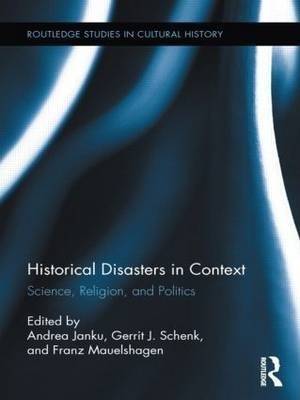Growing concerns about climate change and the increasing occurrence of ever more devastating natural disasters in some parts of the world and their consequences for human life, not only in the immediately affected regions, but for all of us, have increased our desire to learn more about disaster experiences in the past. How did disaster experiences impact on the development of modern sciences in the early modern era? Why did religion continue to play such an important role in the encounter with disasters, despite the strong trend towards secularization in the modern world? What was the political role of disasters? Historical Disasters in Context illustrates how past societies coped with a threatening environment, how societies changed in response to disaster experiences, and how disaster experiences were processed and communicated, both locally and globally. Particular emphasis is put on the realms of science, religion, and politics. International case studies demonstrate that while there are huge differences across cultures in the way people and societies responded to disasters, there are also many commonalities and interactions between different cultures that have the potential to alter the ways people prepare for and react to disasters in future. To explain these relationships and highlight their significance is the purpose of this volume.
- / Article author
- / Article author
- / Article author
- / Article author
